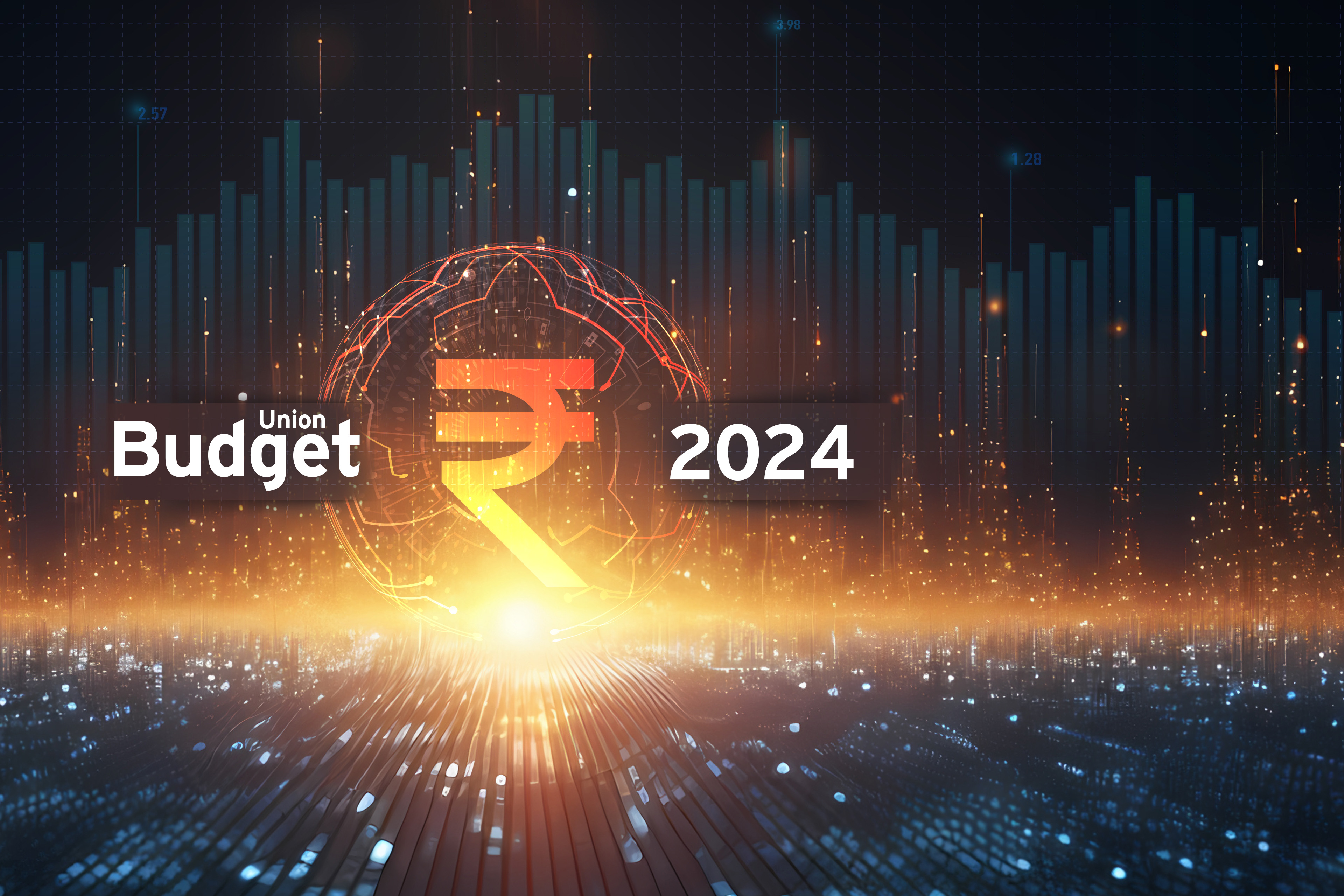EY refers to the global organization, and may refer to one or more, of the member firms of Ernst & Young Global Limited, each of which is a separate legal entity. Ernst & Young Global Limited, a UK company limited by guarantee, does not provide services to clients.
Union Budget 2024
Our team of senior tax and policy professionals decodes and analyzes various aspects of Budget 2024.
EY Leaders on Budget 2024
- Agriculture
- Climate change
- Consumer Products and Retail
- Economy
- Economic policy
- Energy
- Financial services
- GIFT City – International Financial Services Centres (IFSC)
- Infrastructure
- Manufacturing
- Pharma
- Personal Tax
- Tax Technology
The government efforts reflect a comprehensive strategy to transform agriculture, focusing on climate-resilient practices, boosting productivity, enhancing efficiency. The initiatives aim to equip farmers with the tools needed for sustainable growth in changing climates. The budget also sets its intention on enhancing productivity and marketing in the sector, evident in initiatives focusing on development of clusters across major FPO and consumer centres, push for shrimp breeding and exports.
The budget's focus on energy security and climate resilience is commendable. The PM Surya Ghar Muft Bijli Yojana, which aims to install rooftop solar panels on 1 crore homes and provide up to 300 units of free electricity per month, stands out as a significant initiative.
Amrit Kaal focuses on being a technology-driven and knowledge-based economy and as one of the primary visions of growth and job creation. The government has taken a big leap to embrace 5G much more swiftly by setting up 100 labs in engineering institutes for developing apps for 5G services, this will further boost the employment and business opportunities in the country. India has made remarkable advancements in the digital realm and various new initiatives have been adopted to improve the lives of people, accelerating the societal benefits of artificial intelligence under the vision of “Make AI in India.” Three specialized centers will be set up, which will conduct interdisciplinary research and will help in building a talent pool of skilled AI professionals enabling automation via technology in agriculture, health and sustainable cities.
The launch of National Data Governance Policy (NDGP) is a much-awaited and a welcome step to enable to country in availing the full potential of data. This will result in transparent and trust-based data governance, that will lead to a boost in data-based innovation and enhance the delivery of government services to the country’ citizens, especially in key sectors such as health, education, and law and justice.

Bipin Sapra
EY India Tax Partner
Three macro themes are playing out in Consumer and Retail sector:
- Increased consumption push through agriculture reforms, Employment generation push, Urbanisation, controlled inflation and Growth Push
- Abolition of Angel Tax for Startups could benefit digitally first brands, etc.
- Push domestic sourcing through promoting domestic manufacturing through industrial parks, custom duty changes etc.
The Government of India (GoI) has accelerated the process of fiscal consolidation by targeting a reduced fiscal deficit to GDP ratio of 4.9% in 2024-25 as compared to 5.1% provided in the interim budget. Relative to 2023-24, when it was 5.6%, this implies a correction of 0.7% points. An important implication is that GoI’s gross and net market borrowings would be reduced in terms of magnitude which would now amount to INR14.01 lakh crore and INR11.63 lakh crore respectively in 2024-25. This turnaround would facilitate a reduction in policy interest rates and encourage private investment. The emphasis on fiscal consolidation implies reaching the FRBM target of 3% of GDP by 2027-28 with an annual correction of 0.7% points in the next two years followed by 0.5% points in 2027-28. In the medium-term therefore, the private sector would be progressively facilitated to increase its investment demand.
The budget announcement on making data and statistics available, will help facilitate access to data, which would also come in handy for AI development. Operationalisation of Rs 100,000 Crore innovation fund would help entrepreneurs and businesses with R&D related investments that may also lead to AI. The Digital Public Infrastructure is proposed for covering sectors like credit, education, healthcare, law and order, etc.
The Union Budget presents a transformative vision for India's energy sector, emphasizing a robust push towards new energy. While the Finance Minister highlighted the impressive response garnered by rooftop solar plants policy announced as part of interim budget, commitment to research and development of small and modular nuclear reactors underscores the government's foresight in diversifying the energy portfolio and reducing carbon emissions. Effective implementation could position India as a leader in next-generation nuclear technologies, fostering private sector collaborations and boosting high-tech manufacturing.
The first budget of the new government has been announced with a focus on employment generation, MSME sector and the Indian middle class. Some of the changes from a direct tax perspective like the removal of angel tax, peak rate of taxation for foreign bank etc. are welcome from a financial services perspective.
The budget has set a new course for GIFT City IFSC, aligning the tax treatment of Retail Schemes and Exchange Traded Fund (ETFs with Category III IFSC Alternate Investment Funds in India (AIFs), thus will attract global fund managers and boosting the fund management ecosystem. Additionally, IFSC Finance companies now enjoy an exemption from thin capitalisation rules, encouraging the establishment of Finance Companies and treasury units.
Jaiman Patel
Tax Partner – Financial Services, EY India
The Union Budget 2024 lays a robust foundation for achieving Viksit Bharat 2047, prioritizing urban development. It emphasizes city-led growth and PM Awas Yojana-Urban 2.0, with a significant focus on affordable housing, allocating Rs 2.2 lakh crore for affordable housing and Rs 10 lakh crore for urban housing.
Adil Zaidi
EY Partner & Leader - Economic Development Advisory – Infrastructure
India aims to boost domestic manufacturing by changing import duties in sectors like medical devices, energy, and defense. To create more jobs and support MSMEs manufacturers, the government plans to offer employment incentives and expand credit guarantees.

Saurabh Agarwal
EY India Tax Partner
The budget has maintained a neutral stance towards the Pharmaceutical and Healthcare sector. Noteworthy advancements include a commitment to enhance R&D, with an emphasis on basic research and the development of prototypes - re-emphasis of commitment made in interim budget.

Hitesh Sharma
Partner and Life Sciences Leader – Tax, EY India
The Finance Minister has in the budget proposals focussed on bolstering macroeconomics and catering to the needs of ‘Garib’ (Poor), ‘Mahilayen’ (Women), ‘Yuva’ (Youth) and ‘Annadata’ (Farmer). Budget presented today proposes simplification of taxes through immediate measures such as overhaul of capital gains tax regime and making new tax regime more attractive as also on long-term tax reforms which involve comprehensive review of the existing Income-tax law, de-criminalization of penalty provisions and reducing tax disputes.
Embracing the Digital India mission's expansive reach and leveraging Digital Public Infrastructure for agricultural reforms, the Government is setting a new benchmark for technological integration in governance. The Union Budget 2024's pledge to digitalize the residual services of Customs and Income Tax epitomizes the 'Viksit Bharat' ethos, paving the way for a frictionless, paperless tax administration in the transformative epoch of 'Amrit Kaal'.
Video bytes: EY Leaders on Budget 2024
- Energy
- Infrastructure
- Manufacturing
- Personal Tax
- Real estate
- Start-ups
Join our conversations on Budget 2023
How India’s FY25 interim budget could prepare ground for the main budget
Discover the groundwork laid by India's FY25 interim budget, shaping expectations for the main budget. Key insights on economic strategies and policies.
Fiscal consolidation in India: charting a credible glide path
Find out how a reduced fiscal deficit will help India make more investable resources available for the private sector. Learn more about fiscal consolidation in India.
How Budget 2023 has increased the attractiveness for IFSC, GIFT IFSC
Discover how GIFT (IFSC is expected to play a pivotal role in India’s growth journey. Learn more about Tax Incentives for IFSC Unit - GIFT IFSC
How Budget 2023 changes are likely to impact the e-commerce operators in India
EY highlights how Budget 2023 proposals aim to deal with the taxation in e-commerce. Learn more about the changes impacting e-commerce operators.
Union Budget 2023: strict clauses continue to challenge charitable institutions
EY highlights the amendment in charitable trust. Learn more about the Charitable trust amendment in budget 2023.
Budget 2023 widens the scope of Tax Deducted at Source (TDS)
EY highlights how Budget 2023 widens the scope of Tax Deducted at Source (TDS). Learn more about TDS rates.
EY highlights how Budget 2023 attempts to make the new concessional tax regime more attractive. Learn more about the new and old tax regimes.
How amendments in angel tax will impact companies
In Budget 2023, the scope of angel tax expanded, to cover foreign funding. Learn more about the amendments in angel tax.
Sunset clauses in India are truly setting
Sunset clauses are commonly utilised in tax and fiscal laws in India (like in tax holidays and regulations for exchange control). Learn more about the sunset clause in India
Dive into Budget Insights with EY's podcast! Gain deep knowledge about fiscal planning and its effects on the economy. Listen today!





















